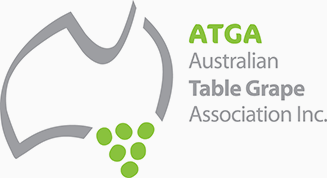Michael Mobilio has only been involved in the table grape industry for eight years, but his love of horticulture runs deep. Michael and his brothers were raised on a stone fruit property at Lake Boga, Victoria, but educated in Melbourne for high school and tertiary studies, as their parents’ placed “great importance on education”. After studying property at RMIT, Michael found a special interest in horticulture, particularly in the growth of the table grape industry, and purchased his own properties. He also sits on the board of directors for Western Murray Irrigation Limited.
How did you become involved in the industry?
I am one of three boys, raised on a family stone fruit farm in Lake Boga. My parents placed great importance on education and that saw my mother and my brothers and I move to Melbourne to complete high school and tertiary studies while my dad continued farming. Upon completion of high school, I studied Property at RMIT University. Early on in my studies, I struggled to stay interested. I was about to go home and help my parents on the orchard, but an opportunity arose to become a property valuer under the mentorship of Danny Thomas who headed up CBRE Agribusiness at the time. I had a particular interest in horticulture, water and hydroponic property valuation and advisory services. Property valuation was good grounding for me as it required a wide range of skills, including financial analysis, report writing, client management, just to mention a few.
Having valued many table grape properties, it was clear that the industry was experiencing exponential growth, mainly driven by export market access and new varieties which offer a better eating experience. At the time, my brother Paul had begun farming stone fruit, returning from Sydney a few years prior after working in hedge fund sales and trading with JP Morgan. Between us, we began our foray into the table grape industry in 2016, purchasing four properties over four years for redevelopment, including water entitlements, developed vineyards and associated infrastructure.
In late 2016, I became a director of Western Murray Irrigation Limited, an irrigation infrastructure operator that maintains three pump stations, two re-lift stations and 184 km of pipelines which supply and service over 4100ha of irrigated land developed to a mix of horticultural pursuits. This provided me with invaluable experience in corporate governance and being non-operational – the complete opposite to family farming where you need to know everything about everything.
By 2020, we had sold a majority stake in our farms, allowing us to diversify and grow the business at the same time. As the business has expanded, my role has become less operational. Seeing teams work well together to achieve the same result (or better) without me micro-managing them is quite gratifying.
During this time, I got married and had 3 kids, they are now 10, 8 and 6 years old, and keep my wife very busy as I have limited time to spend at home.
Where do you see the industry going forward? Where do you think industry needs to focus its attention?
As we have scaled the business and implemented better growing practices, “people” has surpassed “climate” as our biggest risk. Over the last five years, our labour force has changed significantly and there is a lot more supervision and training required. As an industry, we need to make long-term investments in people from field workers through to management so we can deliver the best product to the consumer. We need more practical support to train future managers on all aspects of growing table grapes.
There is a looming flight to quality in the table grape industry, so it’s important that we recognise that table grapes are substitutable, so we need to constantly maintain and improve consumer experience.
What do you love about the industry?
There is an unwavering passion in this industry like no other. Everyone is constantly trying to improve every season. It’s a career that you’ll never get bored in.
Is there anything related to technology or innovation that you or your business would like to explore more?
We have cost pressures like every industry now, but we are constantly working on new innovations and technologies to minimise cost whilst maintaining quality – innovations like improved trellising systems and new covering systems to manage climate risk to make day-to-day management more sustainable.
We also have a focus on reducing fungicide and pesticide use through good nutritional balance, integrated pest management and biodynamic farming practices. We are constantly investing in labour management systems to improve day-to-day management, reporting and compliance, as well as into safety systems to ensure all people on farm return home safely at the end of each day.
